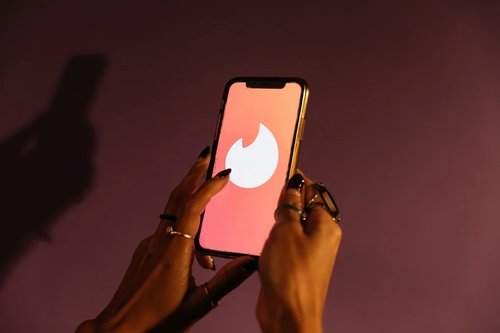Internships: Golden opportunity or labor exploitation?
Dec 08, 2022 - updated Mar 07, 2024
5 mins


Beth Braverman is a freelance journalist based in New York
Even as a freshman working two jobs at the University of Houston, Shanequa Mayes knew that securing an internship would help set her up for success in her future career.
The first two offers she received, however, were for unpaid internships, and Mayes made the decision to turn those opportunities down.
“I am a first-generation college student paying for my degree,” she says. “Taking on an additional job that wasn’t paid wasn’t something that was doable for me, or for anyone in my position.”
But Mayes kept looking, ultimately landing a paid marketing internship with the University of Houston’s graduate school. In addition to paying Mayes, that internship helped her gain the skills and experience she used to launch a digital marketing agency, The Natural Marketer, even before graduating.
While Mayes was able to find a role that worked for her, she believes that a system that rewards those with the privilege to take on unpaid internships is unreasonable and inequitable. She also believes that some companies are taking advantage of young people willing to do free labor.
“I think companies have the budget to pay their interns, they just don’t see it as necessary,” she says. “That needs to change, especially with inflation, and as the cost of living continues to increase. If they want all college students to be successful, they have to pay them.”
While unpaid internships have become the target of negative press—and a handful of lawsuits—in recent years, they’re still fairly common. The argument for unpaid internships, of course, is that the intern simply receives more benefit from the relationships than the workplace does. While that obviously depends on the intern and the company, it also raises questions about inequality and opportunity.
A large share of internships
Internship programs, after all, aren’t always limited to recent grads, and even inexperienced workers can make meaningful contributions to a company. Unpaid internships remain fairly common, with some 40% of college students who took internships this year working without compensation.
The prevalence of unpaid internships varies significantly by sector. Fewer than 30% of for-profit organizations don’t pay their interns, while two-thirds of government organizations use unpaid internships, and nearly 70% of nonprofits use unpaid interns, according to data from the Center for Research on College Workforce Transitions at the University of Wisconsin-Madison (CCWT).
Unpaid internships disproportionately go to women and students of color. One reason for that may be that academic majors that tend to have disproportionate numbers of students by race or gender also tend to be in those fields that also offer unpaid internships. New research, still under review, appears to indicate that the most important indicators of internship pay are major and employer type, says Matthew Hora, CCWT co-director.
In June 2022, the White House announced that it would start paying its interns for the first time in its history. In making the announcement, the White House acknowledged that unpaid federal internships have previously represented a barrier to “hardworking and talented students and professionals, preventing them from contributing their talents and skills to the country and holding them back from federal career advancement opportunities.”
While the White house employs a relatively low number of interns, the move could have a symbolic impact, inspiring other governmental organizations to begin following suit. In the wake of the announcement, the State Department announced that it would also start payings its interns, adding a line item to its budget to do so. In January 2023, the Office of Personnel Management (OPM) also released a memo promoting new guidance on promoting internships.
“Hopefully we will see this trend continue,” says Joshua Kahn, associate director of research and public policy at the National Association of Colleges and Employers. “I would like to see all the other federal agencies start paying their interns as well.”
Establishing a link between college and careers
Unpaid internships began to rise in popularity in the 1980s at the same time as the American educational system began pushing out vocational educational training and refocused K-12 education on pure academics, says Anthony Carnevale, the director of the Center for Education and the Workforce at Georgetown University.
“The academic curriculum that we all took in high school prepared you, at best, to go to college, but it didn’t do anything to connect you to the labor markets,” Carnevale says. “Ever since then we have been struggling to find ways to link high school and college to careers.”
But while employers, colleges, and economists recognize the value of work-based learning and career counseling in setting students up for future professional success, they have evolved in a way that exacerbates existing inequities. Unpaid internships are just one illustration of that problem, Carnevale says.
“They’re very valuable, but they’re going to people who are already advantaged,” Carnevale says. “Our economy rewards work-based learning. You can’t just go to school and then get a job. It doesn’t work that way anymore.”
Some companies and schools allow students to do internships in exchange for school credit, but such arrangements are problematic as well, since students are then essentially paying (with tuition) for the opportunity to work.
“Yes, the intern is learning something and hopefully improving their professional network,” Kahns says. “And if it leads to a paid offer, then the internship was reasonably valuable. But I’m still uncomfortable with the fact that the employer has all the power to decide what happens with that experience.”
A barrier to DEI
That so many companies continue to use unpaid internships seems to contradict a growing corporate trend toward embracing Diversity, Equity & inclusion (DEI) initiatives meant to give workers from marginalized communities a seat at the proverbial table.
For some students who major in subjects or pursue careers that require unpaid internships, the solution has been to change majors or choose another career path.
“Unpaid internships are a major problem,” Kahn says. “It’s a moral and ethical problem, and it has an influence on our workforce as well, since internships are a large source of recruiting for entry level positions.”
The ongoing talent shortage may ultimately result in a more favorable market for interns, Carnevale says, since labor-starved employers will be looking for ways to attract interns who could ultimately become full-time employees. An increase in labor-friendly regulations could also lead to more paid internships.
As it stands now, highly regulated industries, such as finance or healthcare, tend to have far fewer unpaid interns, while industries that face less regulatory scrutiny, such as media, entertainment, and fashion, tend to have more unpaid interns. Changing that will require a shift in culture and an emphasis on “paying your dues” at the start of one’s career.
Some colleges are starting to implement initiatives aimed at making unpaid internships less of a barrier for students. About a third of schools have put in place a stipend or other funding mechanisms for students in need. Such programs are typically competitive and require the students to apply in order to get funding, Kahn says.
“We think other groups, such as companies or the government, should get involved in funding initiatives for internships as well,” Kahn says. “It would be nice if they contributed to some sort of fund, since they are the ones benefiting from unpaid labor.”
Photo: Welcome to the Jungle
Edited by Jordan Nadler
Follow Welcome to the Jungle on Facebook, LinkedIn, and Instagram, and subscribe to our newsletter to get our latest articles every day!

More inspiration: Follow hiring trends

Hilke Schellmann exposes the flaws in AI that control your next job offer
AI tools promise fairness in hiring but often fail. Hilke Schellmann reveals how these flawed systems shape careers and why transparency is crucial.
Dec 23, 2024

How AI coaching can give young job hunters an edge
Considering a career coach but don't have the resources to pay for one? AI might be able to help.
Dec 12, 2024

Are internships replacing entry-level jobs?
If an entry-level role requires years of experience, young job hunters are already at a disadvantage …
Mar 06, 2024

Swipe right for success: Using dating apps to job hunt and network
Genius networking move or master manipulation?
Jan 30, 2024

Job search in 2024: A candid look at the US job market
Are layoffs coming to an end? Will you finally land a job in your dream industry? Let’s see what the market has in store …
Jan 22, 2024
The newsletter that does the job
Want to keep up with the latest articles? Twice a week you can receive stories, jobs, and tips in your inbox.

Looking for your next job?
Over 200,000 people have found a job with Welcome to the Jungle.
Explore jobs